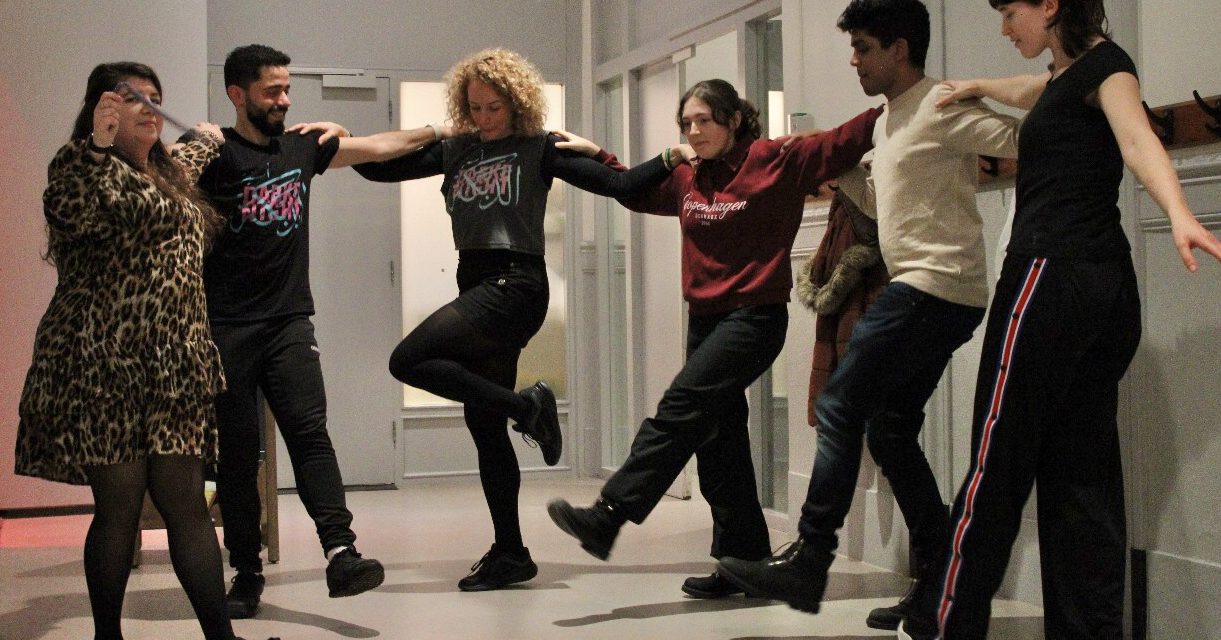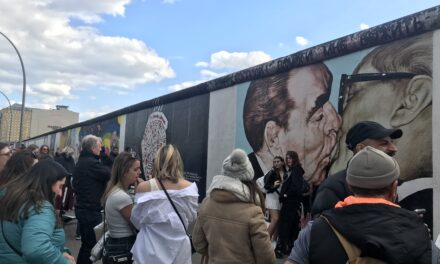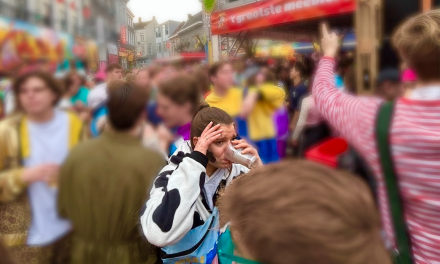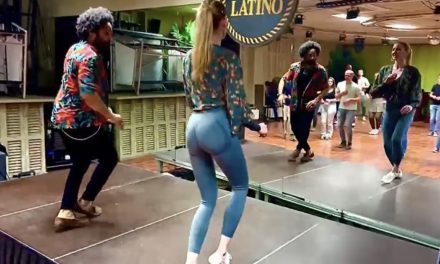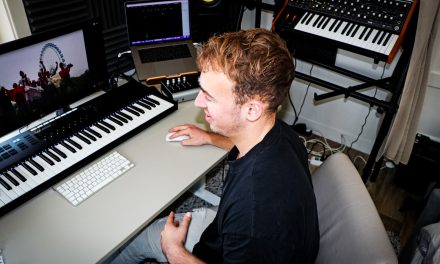Since the anti-immigration politician Geert Wilders won the Dutch election in 2023, the topic of integration has led to polarization between immigrants and Dutch people born in the Netherlands. But, there are initiatives that aim to tackle this. Iris Loos organizes Arabic dance events to create a space for cross-cultural dialogue. “We are making our own revolution to balance it out”, she says.
It is Tuesday night and the dance floor in Parnassos Cultuurcentrum in Utrecht is filled with almost twenty people. Some look slightly nervous, others excited. The mixed group is here to learn Dabke, a traditional folk dance performed at weddings and parties in some Arabic countries such as Syria, Palestine and Jordan. When the music starts, the participants take each other’s hands and start walking in a circle formation, stomping loudly on the fifth step. At first glance, it looks like an ordinary leisure activity. But the intention behind it is far more profound than that.
“We wanted to connect people together”, explains Iris Loos, co-founder of the Dabke nights foundation. Together with her former colleague Tamer Alalloush, she started the initiative in 2016, at a time when many Syrians fled the war and came to the Netherlands. She felt that the refugees were not given a good welcome in the country, and wanted to create a way for the Dutch and the new arrivals to meet.
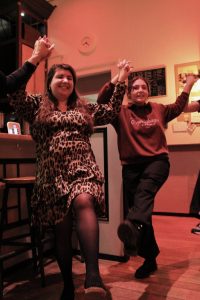
Dabke can be danced everywhere – it only takes a small group of people and some music. Here, Dorine and Munise Yasar are dancing with their hands in the air.
But immigration has come to be a polarizing topic in the Netherlands. This was further made clear last November, when the politician Geert Wilders and his far-right party, the PVV, won the election. The party’s manifesto contains both anti-Islam and anti-immigration policies. Iris Loos describes how their community was shocked by the election results. But instead of being disheartened, it served as a spark for them. “We are even more motivated to organize Dabke events now. We are getting the community together, and we will find our way”, she says.
But for integration to work, she stresses, it is important that the Dutch also have a curious and open-minded attitude. Otherwise, it does not matter how hard the newcomers try to integrate themselves – it will be fruitless. “I believe in making integration a two-way street”, she underlines.
On the dance floor, the participants are learning quickly. The teacher, Mohamad Dabbah, leads the group and spins a short rope with his hand to show the tempo and to evoke energy in the crowd. He knows from experience how activities like Dabke can be crucial in finding a community in a new country.
Mohamad Dabbah and Iris Loos sitting in the Parnassos bar after class, chatting with one of the students.
“Dance has made me connect with people and become friends with both Dutch people and other nationalities”, says Mohamad Dabbah. Three years have passed since he arrived, and he thinks that his life in the Netherlands would have been much harder without the Dabke events.
Iris Loos believes that it does not really matter what specific activity the natives and newcomers do together. But she points out that a positive aspect of dance in particular is that there is no language barrier. The linking of hands in Dabke can also be powerful, both for the non-natives and the Dutch. “If a person gives you their hand and says ‘guide me, teach me’, it is not only welcoming, it is also very empowering”, she emphasizes.
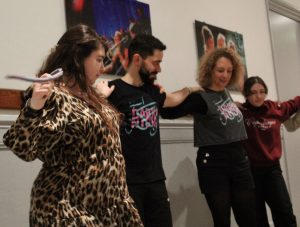
Dorine tries to lead the group, spinning the rope at the same time. Mohamad Dabbah, Iris Loos and Munise Yasar are following.
At the end of the class, the group is dancing as one big family to the intense pulse of the music, their arms around each other’s shoulders. “I think that many in the West think about war and conflict when they see Arabs”, says Mohamad Mousa, a course participant of Palestinian origin. “But we are much more than that. We dance, we sing, we have good food”, he accentuates.
